Last year, when the unprecedented nation-wide lockdown was imposed, hundreds of migrant workers throughout the country lost their livelihood overnight. They had no work, no roof and no food with the blink of an eye. Walking thousands of miles in tattered chappals, migrants with their families marched towards their hometowns in despair in the scorching heat of late March. Some were brought back by the State Governments through trains and buses. These included many who returned to the tribal dominated undivided Koraput district in the southern part of Odisha, including Rayagada district,
Rayagada, covered with dense forest, hills and natural resources, is a home to major tribes like Kandhos, Jhodias and Souras who sustain widely on agriculture and collecting forest produces.Most parts of the district are untouched by development with low level of education and chronic poverty that has led many to migrate to different parts of the country in search of better livelihood options. The push owing to crop loss and heavy debt burden driving them into poverty.
The unforeseen return of large number of migrants posed multiple serious challenges to the state and civil society. Envisaging to ensure and protect the rights and entitlements of migrants in Rayagada, a Migration Support Service Centres (MSSCs) were set up by CYSD in collaboration with UNICEF. MSSC developed a database of migrants on the basis of age, gender and skill sets acquired by them and the details of their employers for tracking, monitoring and response.
The centre facilitated the registration of workers under Building and Other Construction Workers (BOCW), MGNREGS and inclusion in entitlements with the help of local government. It also tried to create an environment for inclusion of the children of the migrants in the social welfare schemes of the government, like the ICDS, ICPS, SSA, Kishori Shakti Yojana, Universal Immunization Programme, Biju Kanyaratna Yojana, Banishree, etc.
MSSC undertook activities for skilling and re-skilling of migrants and youths with a focus on prior learning of semi-skill migrants and development in the capacity of local governments towards integrating the needs of migrants, children, women and other distressed groups in Gram Panchayat Development Plan (GPDP) and monitoring at the local level.
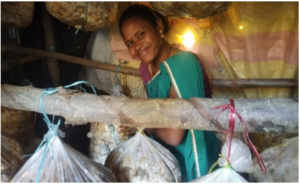 Harsha Kadraka, a 22-year-old returnee migrant who received Agri-based skill training on Mushroom cultivation from MSSC says that she is excited to sell her mushroom and earn Rs. 700 – 900 daily. “From a distress migrant to a self-employed has only been possible because of CYSD and UNICEF’s joint efforts” says delightful Harsha.
Harsha Kadraka, a 22-year-old returnee migrant who received Agri-based skill training on Mushroom cultivation from MSSC says that she is excited to sell her mushroom and earn Rs. 700 – 900 daily. “From a distress migrant to a self-employed has only been possible because of CYSD and UNICEF’s joint efforts” says delightful Harsha.
Besides, attempts were also made in strengthening the local institutions including Child protection committees; mobilizing Gram Panchayats (GPs) to strengthen infrastructures for children at Anganwadi Centres (AWCs) and schools, and facilitating community leadership development at source for safe migration.
The centre has been working towards ensuring better policy and programs for migrants in the context of inter-state registration portability of entitlement benefits. It is deeply engaged in exploring the opportunities for expanding and replicating the model.MSSC is currently functional in 10 Gram Panchayats of Kolanara Block of Rayagada district, namely, Kolanara, Rayagada, Suri, Dunduli, Gadiseshkhal, Bada Khilapadar, Jharidi, Bankili, Rekhapadar, Bhoimoda, Katikana covering 114 villages having 44677 population with 10174 HH. The Centre is benefiting 1049 migrants of 147 families from these 10 GPs.
The project is being implemented on the ground with the help of multiple-stakeholders, like concerned Sarpanch of 10 Gram Panchayats, 10 Samiti Sabhya (Members), 118 Ward Members, 10 PEOs, 10 JRS, 113 AWWs, 131 ASHA, 28 ANM, Medical Officer, BDO, WEO, BSSO, District Labour Officer, Block Chairperson, Community Resource Persons (Volunteers of CYSD-UNICEF) are a part of the initiative.
A total of 1046 migrants’ families are involved in this process; and about 586 new born babies have been registered in between January 2020 – December 2021.Initial intervention revealed that more than 5000 people were deprived of their basic social entitlements like, PDS, Pension, health insurance, Aadhar card, job cards, labour cards, Educational scholarships, immunization, birth and death registration, housing, drinking water, electricity and so on. The most affected of them were the migrant families. In order to address this problem, MSSC with multiple stakeholders’ collaboration intervened at the micro level through the ‘Single Window System’.
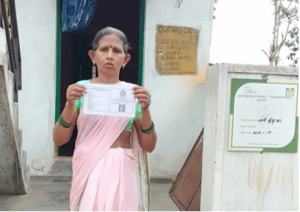 Nedi Padmabati, a 45-year-old widow from Darabada village in Rayagada district says that she is grateful to have received a ‘Labour Card’ with the support of CYSD and UNICEF. “Being a widow, it has become very hard and worrisome for me to survive amidst Covid-19 pandemic with the burden of nurturing two children of mine”, says Nedi.
Nedi Padmabati, a 45-year-old widow from Darabada village in Rayagada district says that she is grateful to have received a ‘Labour Card’ with the support of CYSD and UNICEF. “Being a widow, it has become very hard and worrisome for me to survive amidst Covid-19 pandemic with the burden of nurturing two children of mine”, says Nedi.
The Labour card will make Nedi eligible in obtaining government benefits like; assistance in case of any accident, death benefit, pension, medical expenses for treatment, loans and advances for construction of own house, financial assistance for skill up-gradation, education for children, purchase of working tools, marriage of two dependent daughters and even assistance in funeral expense.Despite several initiatives, the number of distressed migrants has only seen a surge in the last two decades. The lockdown surfaced the problems of migrant workers and highlighted the dire need to ensure safety and security for 60 million people of the country who are inter-state labour migrants.
MSSC is a small joint effort by CYSD and UNICEF in Rayagada to solve the grassroots problems of Migrant returnee in dealing with the tsunami like issue. However, the necessity for similar initiatives holds special importance. It is the time to provide protection and care for greater outcomes. Projects like the MSSC need scale up, technical support and assistance in this mean time when the second wave of COVID-19 has already hit the state.
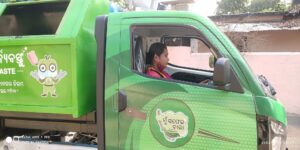 On the occasion of International Women’s Day (8th March, 1999), CYSD launched the WoW programme in collaboration with Azad Foundation and Mahindra Finance in Bhubaneswar to train women between 18-35 age group from various slums in the city to become chauffeurs.
On the occasion of International Women’s Day (8th March, 1999), CYSD launched the WoW programme in collaboration with Azad Foundation and Mahindra Finance in Bhubaneswar to train women between 18-35 age group from various slums in the city to become chauffeurs.
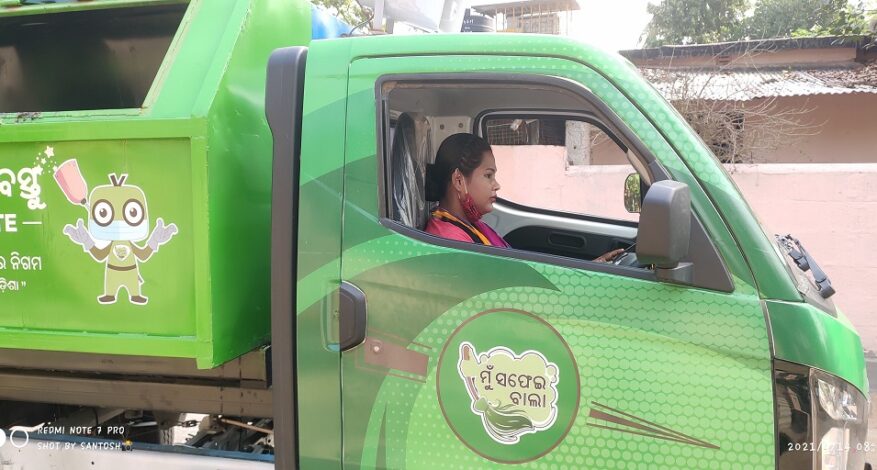

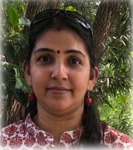 Each hypothesis must be open to be tested, and each belief must be verified to establish reliability and validity. Providing psychosocial support in the hinterlands of Odisha with the collaboration of CYSD with three NGOs gave me a clear invitation to either concede or not concede failure—to me, there was no in between at that time; especially with coordinators, NGO partners (Harsha Trust, Gram Vikas and Srushti) and CRPs who had very little exposure to mental health assignments prior to this project.
Each hypothesis must be open to be tested, and each belief must be verified to establish reliability and validity. Providing psychosocial support in the hinterlands of Odisha with the collaboration of CYSD with three NGOs gave me a clear invitation to either concede or not concede failure—to me, there was no in between at that time; especially with coordinators, NGO partners (Harsha Trust, Gram Vikas and Srushti) and CRPs who had very little exposure to mental health assignments prior to this project.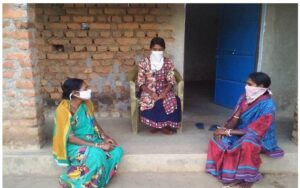 However, every story has an ending—and this doesn’t end with a ‘no’—we found ways to continue providing support through group sessions. An increasing number of people started to become vocal about their emotional vulnerability, thanks to the courage of a particular CRP Hemalata, who conducted thirteen group sessions out of a total of twenty-nine sessions in a span of two months. It was such a profound experience to see 436 SHG members being sensitized on the prevalence of mental health and emotional awareness. Toofan from Gram Vikas literally worked on a war footing mode and contributed to the supervisions through his case presentations.
However, every story has an ending—and this doesn’t end with a ‘no’—we found ways to continue providing support through group sessions. An increasing number of people started to become vocal about their emotional vulnerability, thanks to the courage of a particular CRP Hemalata, who conducted thirteen group sessions out of a total of twenty-nine sessions in a span of two months. It was such a profound experience to see 436 SHG members being sensitized on the prevalence of mental health and emotional awareness. Toofan from Gram Vikas literally worked on a war footing mode and contributed to the supervisions through his case presentations.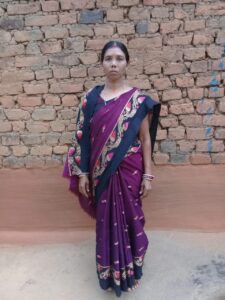 The road which was unheard-of in August 2020 was almost ready by December 2020; and the travelers of this road ready by the last week of December 2020. They voluntarily reached out to us and declared the existence of mental illnesses in their families; one call led to another. I mention Phulamani with special emphasis here, one of our most resourceful CRPs, who helped the heads of almost seven families get in touch with me and plan for their treatment.
The road which was unheard-of in August 2020 was almost ready by December 2020; and the travelers of this road ready by the last week of December 2020. They voluntarily reached out to us and declared the existence of mental illnesses in their families; one call led to another. I mention Phulamani with special emphasis here, one of our most resourceful CRPs, who helped the heads of almost seven families get in touch with me and plan for their treatment.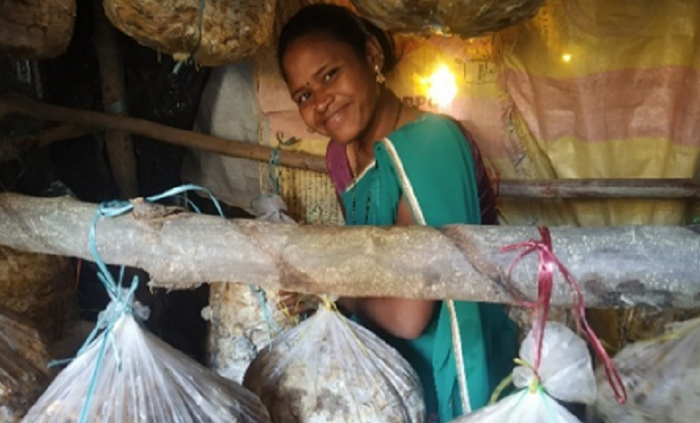
 Harsha Kadraka, a 22-year-old returnee migrant who received Agri-based skill training on Mushroom cultivation from MSSC says that she is excited to sell her mushroom and earn Rs. 700 – 900 daily. “From a distress migrant to a self-employed has only been possible because of CYSD and UNICEF’s joint efforts” says delightful Harsha.
Harsha Kadraka, a 22-year-old returnee migrant who received Agri-based skill training on Mushroom cultivation from MSSC says that she is excited to sell her mushroom and earn Rs. 700 – 900 daily. “From a distress migrant to a self-employed has only been possible because of CYSD and UNICEF’s joint efforts” says delightful Harsha. Nedi Padmabati, a 45-year-old widow from Darabada village in Rayagada district says that she is grateful to have received a ‘Labour Card’ with the support of CYSD and UNICEF. “Being a widow, it has become very hard and worrisome for me to survive amidst Covid-19 pandemic with the burden of nurturing two children of mine”, says Nedi.
Nedi Padmabati, a 45-year-old widow from Darabada village in Rayagada district says that she is grateful to have received a ‘Labour Card’ with the support of CYSD and UNICEF. “Being a widow, it has become very hard and worrisome for me to survive amidst Covid-19 pandemic with the burden of nurturing two children of mine”, says Nedi.